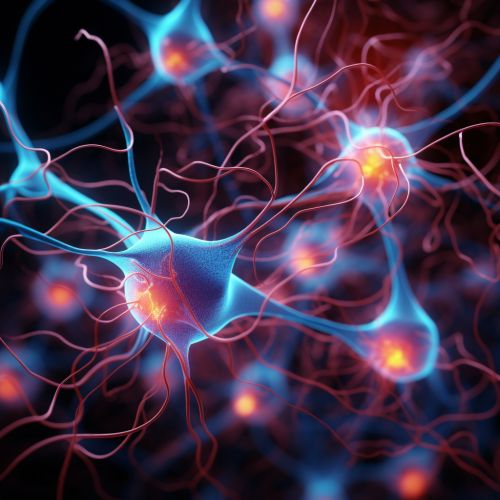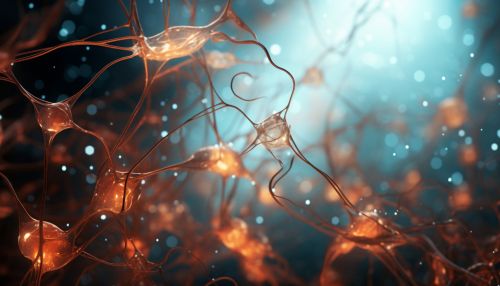Synaptogenesis
Overview
Synaptogenesis is the process by which neurons form synapses with other neurons, resulting in trillions of connections. This process is crucial for the formation of functional neural circuits, which enable the brain and nervous system to function. Synaptogenesis takes place at a very high rate during an individual's "critical period" of neurodevelopment, but continues throughout life as the brain changes and learns.
Mechanisms of Synaptogenesis
The mechanisms of synaptogenesis are complex and involve a variety of molecular and cellular processes. These include the outgrowth of neurites, the formation of growth cones, and the recognition of target neurons by growth cones. Once a target neuron is recognized, the growth cone transforms into a presynaptic terminal, and the target neuron develops a postsynaptic terminal, forming a new synapse.


Molecular Mechanisms
The molecular mechanisms of synaptogenesis involve a variety of proteins and signaling molecules. These include neurotrophins, which promote the survival and growth of neurons, and neurexins and neuroligins, which mediate the adhesion between presynaptic and postsynaptic terminals. Other important molecules include synaptophysin, which is involved in the release of neurotransmitters, and synapsin, which regulates the release of neurotransmitters.
Cellular Mechanisms
The cellular mechanisms of synaptogenesis involve changes in the structure and function of neurons. These include the outgrowth of neurites, which are projections from the neuron's cell body that form the basis for the neuron's connections with other neurons. The tips of neurites form growth cones, which navigate through the extracellular environment to find target neurons. Once a target neuron is found, the growth cone transforms into a presynaptic terminal, and the target neuron develops a postsynaptic terminal, forming a new synapse.
Role in Neurodevelopment
Synaptogenesis plays a crucial role in neurodevelopment, the process by which the nervous system develops and matures. During the critical period of neurodevelopment, synaptogenesis occurs at a very high rate, resulting in the formation of trillions of synapses. This process is crucial for the formation of functional neural circuits, which enable the brain and nervous system to function.
Role in Learning and Memory
Synaptogenesis also plays a key role in learning and memory. The formation of new synapses, and the strengthening or weakening of existing synapses, is thought to underlie the brain's ability to learn and remember. This process, known as synaptic plasticity, is thought to be the basis for the brain's ability to change and adapt in response to experience.
Disorders Associated with Synaptogenesis
Abnormalities in synaptogenesis have been implicated in a variety of neurological and psychiatric disorders. These include autism, schizophrenia, and intellectual disability. In these disorders, the process of synaptogenesis may be disrupted, resulting in abnormal neural circuits and impaired brain function.
